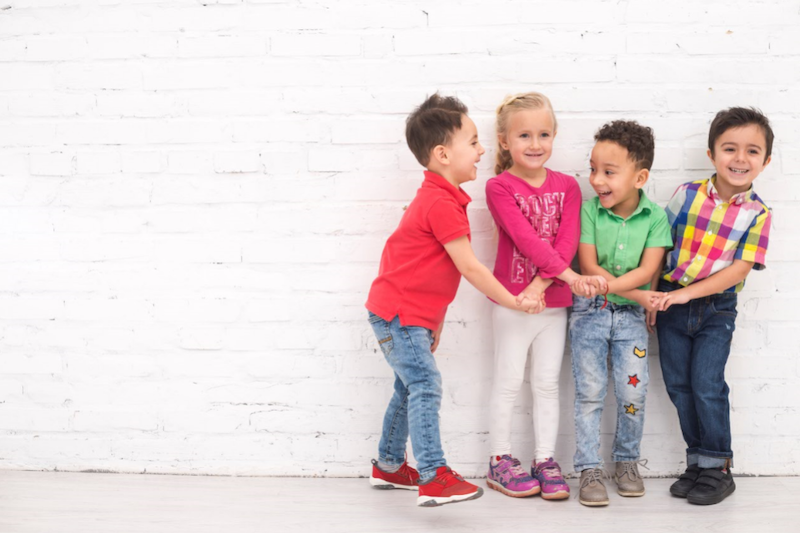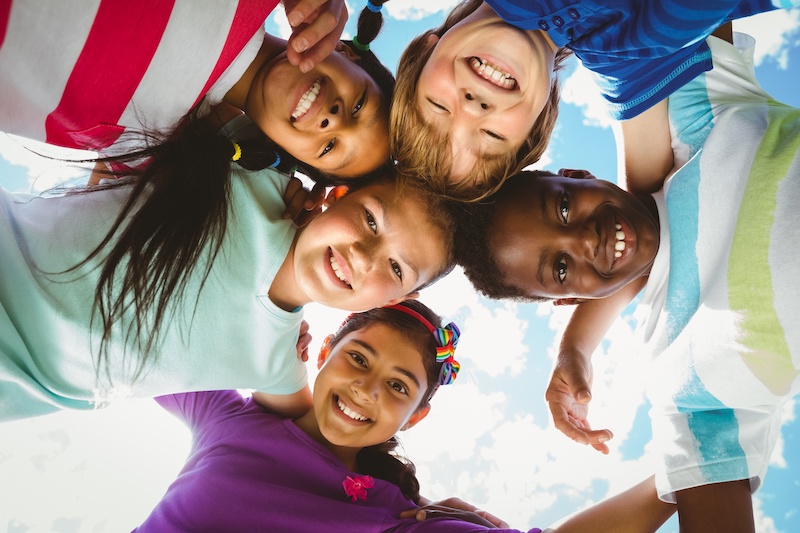Friendship is essential at almost every age, and making friends is an important developmental goal for children. In fact, making friends creates important contexts in which children can learn and practice social, communicative, and emotional development skills.

The 5 Cs of friendship for children
- Compassion: Children who have close friends learn to have compassion and empathy for others because they build a meaningful friendship beyond surface-level social skills. Empathy and compassion are the roots of kindness, and children who learn the importance of these skills tend to be friendly and kind to others.
- Confidence: Friendships help children build self-esteem and can even provide a barrier against bullying. Healthy friendships can also empower children as it turns peer pressure into a positive force.
- Conflict resolution: When conflicts inevitably arise, it can be difficult for children. But getting their feelings hurt and making mistakes is all part of the learning process. Not only is it normal for children to argue at times, but it is also a valuable learning opportunity as it teaches them to listen to and respect other points of view.
- Courage: When children have a friend to confide in as they ride the rollercoaster of childhood, they are better able to cope with and bounce back from challenges and setbacks. In addition, they learn to face problems and work through issues together.
- Connection:Growing up, children deal with several stresses and worries. They may struggle to verbalise their feelings and, as such, may choose to keep their emotions to themselves. Having close friends afford children the opportunity to work through their worries and stress with someone who can relate. Developing a deep connection with another child in this way can be very powerful for children.

Let them be themselves
Although friendship is an integral part of life, not all children need or want many friends. While some children are outgoing and love to have a lot of friends, others are more suited to having one close friend or a small social circle. It is important to let your child be who they are and celebrate their unique personality and specific needs.
If your child struggles socially or has trouble making and keeping friends, there is no need to worry. It may simply be that they have not had enough opportunities to make friends. Getting children involved in activities with children their age who have similar interests can be a great way to find friends for your child. However, when taking this approach, be sensitive to your child’s energy level and personality.
Also read: Can homeschoolers take part in extracurricular activities?
Gifted children often have problems making friends with children their own age and may prefer to be around adults. Of course, a medical condition such as anxiety, ADHD, autism, or selective mutism could also affect your child’s social relationships. Finally, if your child suffers from stress, depression, a learning disability, or even bullying, this too could influence their ability to establish friendships.
Teen friendships
As children become teenagers, friendships become increasingly important. During their teenage years, children are figuring out who they are beyond the family. It is crucial for them to feel a sense of belonging and acceptance from their peers.

As with younger children, shared interests, attitudes, social struggles and being in circumstances that may resemble their own are some of the foundations for teen friendships. In adolescence, having close connections can help teens learn about trust, respect, acceptance, and intimacy, all of which are important concepts to understand as they enter adulthood.
Also read: What to do when your teen wants to start dating
Of course, close friendships also offer a host of other benefits for teens, including:
- Improved self-esteem.
- Lower rates of anxiety and depression.
- Stronger emotional regulation skills.
- A happier, more optimistic outlook.
- Greater empathy towards others.
- Feelings of trust.
- Better cognitive function.
Remember that friendships – at any age – are full of ups and downs. So, if your child or teen is going through a slump, try not to be too worried. Making friends and being a good friend are skills that can be learned, so focus on helping them build and practise their friendship skills.
By Danielle Barfoot





